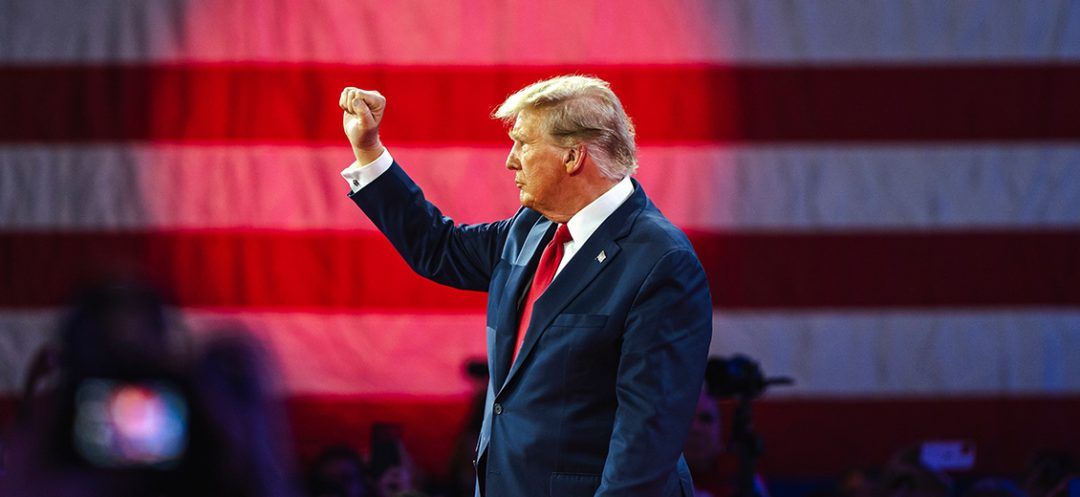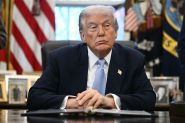- Home
- Middle East
- Is Trump Better for Muslims?

©Jonah Elkowitz / shutterstock
The turn of events in the presidential elections took an unexpected twist when President Biden suspiciously suspended his campaign over social media and not in a televised speech and endorsed Kamala Harris. This move raised eyebrows, particularly because the Obamas did not endorse Harris, whereas the Clintons did, fueling speculation about internal party pressures. Was Biden coerced into this decision? The lack of support from the influential Obamas contrasted starkly with Clinton's backing, hinting at potential rifts within the Democratic Party. As the election race heats up, questions about Biden's motivations and the party's unity persist. Amidst this political turmoil, the key question remains: will these developments bolster or hinder Trump's chances of securing another term?
While many perceive the Democratic Party as more inclusive and supportive of minority groups, including Muslims, there are arguments to be made about why President Trump could be seen as a better option for Muslims than Kamala Harris and the Democrats. This perspective hinges on several key points: economic opportunities, foreign policy, and religious freedom.
President Trump's tenure was marked by several statements and policies that were perceived as offensive toward Muslims, sparking significant controversy and criticism. Notably, his 2015 call for a "total and complete shutdown of Muslims entering the United States" following terrorist attacks drew widespread condemnation for promoting religious discrimination. Trump also suggested that "Islam hates us" during a 2016 interview, reinforcing negative stereotypes about Muslims. His administration's travel ban, often dubbed the "Muslim ban," targeted several predominantly Muslim countries, further fueling accusations of Islamophobia. These actions and statements were criticized by human rights organizations and sparked protests, as many viewed them as unjust and discriminatory against Muslim communities, but some Muslims considered his statements as Trump doing “the necessary” to satisfy his base.
One of the strongest arguments in favor of Trump’s presidency for Muslims is his economic policies. President Trump focused on deregulation and tax cuts, aiming to create a more favorable business environment. Many Muslim Americans are entrepreneurs and small business owners who benefited from the lower taxes and reduced regulatory burdens introduced during Trump’s tenure. By fostering a pro-business climate, Trump’s administration helped create job opportunities and economic growth that potentially benefited Muslim communities across the country.
In contrast, the economic policies proposed by Kamala Harris and the Democrats often emphasize higher taxes and increased regulation. While these measures aim to address income inequality and provide social safety nets, they could also burden small business owners, including many within the Muslim community. For Muslims looking to thrive economically, Trump’s approach to economic policy might be seen as more advantageous.
Foreign policy is another area where some argue that President Trump’s actions were more favorable to Muslims than those of the Democrats. Trump’s administration brokered several historic peace deals in the Middle East, known as the Abraham Accords. These agreements normalized relations between Israel and several Arab nations, including the United Arab Emirates and Bahrain. While controversial, these accords were seen by some as steps toward greater stability and cooperation in the region.
Additionally, Trump’s decision to reduce the United States military presence in conflict zones like Syria and Afghanistan was viewed by some Muslims as a positive move. Plus, Trump's policy towards Iran was characterized by a "maximum pressure" campaign, which included withdrawing from the Iran nuclear deal and imposing stringent economic sanctions. This approach aimed to curb Iran's nuclear ambitions and regional influence, and lots of Arab Muslims in that region want an end to Iran’s Proxies.
On the other hand, Kamala Harris and the Democratic Party have often supported policies that involve maintaining or increasing military presence in certain regions, these policies can sometimes result in extended conflicts, negatively impacting Muslim populations in those areas.
Religious freedom is another crucial area where some argue President Trump’s policies were more favorable for Muslims. During his tenure, Trump signed executive orders aimed at protecting religious liberties. These orders sought to prevent government interference in religious practices and ensure that individuals and organizations could freely practice their faith.
Additionally, Trump’s appointment of conservative judges to the federal judiciary, including the Supreme Court, was seen by some as a move to protect religious freedoms. Conservative judges are often more inclined to rule in favor of religious rights, which is an important consideration for Muslims who value the ability to practice their faith without government intrusion.
In contrast, the Democratic Party, including Kamala Harris, emphasizes a strong separation of church and state. While this approach aims to ensure that government policies are inclusive and secular, it can sometimes be perceived as less supportive of religious communities. For Muslims who prioritize their religious values and practices, Trump’s policies might seem more accommodating and protective of their rights.
While the perspective that President Trump is better for Muslims than Kamala Harris and the Democrats is certainly open to debate, it is grounded in specific policy considerations regarding economic opportunities, foreign policy, and religious freedom.
Read more



Comments